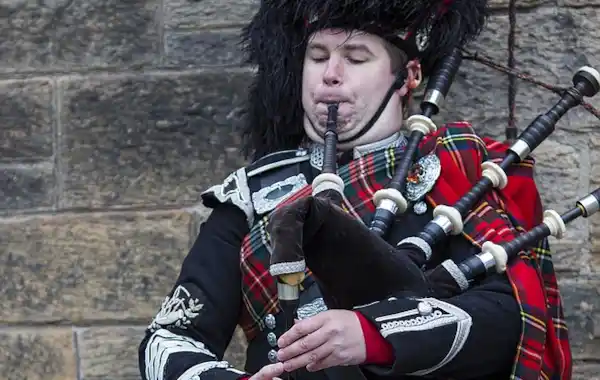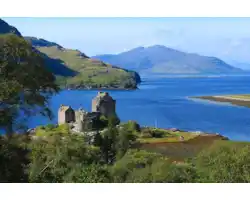27 June 2016
|
Genealogist and lecturer Dr Bruce Durie has invaluable tips on how to get started with Scottish ancestry, the key records to look at and websites to visit.
Would you like to find out how to trace your Scottish ancestors? Then let’s get seeking those Scottish forebears.
General advice to budding family historians
- Begin with someone who was alive around 1911 or 1901 as the main records are readily available to check back from that date (eg birth, marriage, death, census, wills & testaments, and valuation rolls) and work backwards.
- Never guess! Look for actual documents and do the research yourself.
- If you hit a log-jam, shelve it and work on another aspect, such as cousins. You'll be amazed how often that one piece of vital information comes from an unexpected direction.
How to get started searching Scottish ancestors
Scotland has an unparalleled set of online records for family history, accessible via pay-per-view credits (from 30 credits for £7). Visit the Scotlands People website to get:
- Baptisms, marriage banns and burials (Church of Scotland) from the mid-1500s to 1854. Plus some Catholic records 1703-1908
- Statutory (Civil) births, marriages and deaths 1855-2012
- Wills and Testaments 1513-1925
- Censuses, every 10 years from 1841-1911
- Coats of Arms registered or granted 1672-1909
- Valuation Rolls (essentially, Heads of Households) – (19th and early 20th centuries)
Next steps in Scottish family history
Scotlands Places has numerous more specialised records, such as Carriage Tax 1785-1798, Farm Horse Tax 1797-1798 and many more! Also detailed collections of maps and official records. Some records are free, some access is via a 3-month £15 subscription to the site.
Scottish names
Surname spellings can change from one generation to the next, and were not fixed until fairly recently. Don’t fret over variants – a McKay is a MacKay is a M’Kay is a McCay is a Mackey is a Makee is a Makey, and all are derived from MacHugh (Gaelic, MacAoidh). Forget everything you have heard or read about “Mc is Scottish and Mac is Irish” – it’s nonsense, and often both will be recorded as M’.
Scottish forenames: Remember too that in Scotland it's typical to call someone by a second or third forename, or by a diminutive - so the person you know as ‘Sandy Brown’ may have been christened ‘John Harold Alexander Brown.
Scottish clans
- Surnames can change – especially in the Highlands, it was common practice to adopt the surname of the local landowner or clan chief.
- Not everyone is in a Clan – the clan was a Highlands and Borders phenomenon, and Lowland families were never part of the clan structure. Bruce, for example, is not a Clan.
- Do not assume a Coat of Arms linked to your surname is yours – in Scotland, Arms are the legal property of one person at a time, heritable, and must be registered with or granted by the Lord Lyon.
- Interested in which tartan you should wear? Visit tartan register.
Visit the National Library of Scotland online
The National Library of Scotland has an incredible array of digitised records and indexes for family history, including trade directories, maps and surname histories.
- Join a family history society and a clan/family society in Scotland. Even if it isn't local to you, having experts in a particular locality with access to local resources can help break down brick walls.
- See also Scottish Genealogy Society has a great library, regular talks etc.
- Ancestral Scotland has hints on planning a trip and you could take in the National Records of Scotland in Edinburgh and the Mitchell Library in Glasgow too!
- Scottish Archive Network provides a single electronic catalogue to the holdings of more than 50 Scottish archives.
Dr Bruce Durie is a professional genealogist and heraldist living and working in Scotland, and is Shennachie to the Chief of Durie, to COSCA and to the Order of Alba. He will be spending most of 2016 in the USA researching Scottish Lowlands Migration of a Fulbright Senior Scottish Studies Scholar award.
Interested in Scottish history? Then check out our sister magazine History Scotland for even more information.









